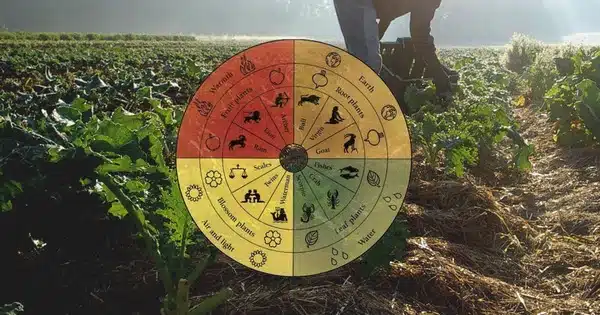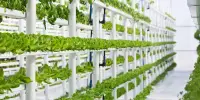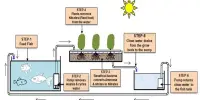Biodynamic agriculture is a type of alternative agriculture founded on pseudo-scientific and esoteric principles first proposed by Rudolf Steiner (1861-1925) in 1924. It is a holistic and sustainable farming method in which the farm is viewed as a self-contained, interconnected ecosystem. It was the pioneering organic agricultural movement. It emphasizes spiritual and mystical ideas while treating soil fertility, plant development, and cattle care as environmentally interrelated duties.
Biodynamics is similar to other organic techniques in that it stresses the use of manures and composts while prohibiting the use of synthetic (artificial) fertilizers, insecticides, and herbicides on soil and plants. The biodynamic approach is distinguished by its management of animals, crops, and soil as a unified system, an early emphasis on local production and distribution channels, and the utilization of old and innovative local breeds and variations. Some approaches make use of an astrological sowing and planting calendar.
Key principles and practices of biodynamic agriculture include:
- Organic Farming: Organic farming serves as the foundation for biodynamic farming. It promotes the use of natural and organic resources for soil fertility and pest management, while avoiding the use of synthetic chemicals, pesticides, and genetically modified organisms.
- Biodiversity: Biodiversity conservation is critical in biodynamic agriculture. Farms are built to replicate natural ecosystems, combining a wide range of crops, livestock, and even wildlife to improve ecological balance. Crop rotation and companion planting are both typical agricultural methods.
- Compost and Soil Health: Compost and green manure are used on biodynamic farms to improve soil health. Composting is a key process, with specialized preparations used to boost soil life and microbial activity.
- Biodynamic Preparations: Biodynamic farming utilizes specific herbal and mineral preparations that are applied to the soil or sprayed on plants at specific times in the farming calendar. These preparations are believed to enhance the life forces within the farm ecosystem.
- Lunar and Astrological Calendar: Biodynamic farmers often follow a planting calendar based on lunar and astrological cycles. They believe that these cycles influence plant growth and development.
- Animal Integration: Livestock play a vital role in biodynamic farms. They provide manure for compost and contribute to farm biodiversity. Farms often raise their animals according to biodynamic principles.
- Holistic Approach: Biodynamic agriculture takes a holistic approach, viewing the farm as a single organism. It tries to preserve a harmonious balance among all elements of the farm, including plants, animals, and soil.
Biodynamic agriculture is seen by its supporters as a more sustainable and spiritually rewarding alternative to farming. Critics, on the other hand, contend that some of its techniques lack scientific support and therefore be difficult to apply on a wide scale. Nonetheless, it has acquired favor among certain elements of the farming community and customers who are interested in supporting environmentally sensitive and holistic approaches to agriculture.














